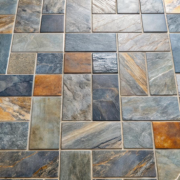Whether you’re building a new home, renovating an old one, or dealing with a plumbing emergency, understanding the pros and cons of different pipe materials is essential. The right piping system not only ensures the smooth running of water throughout your property, but it also minimizes the need for future repairs and maintenance.
Here, we delve into the benefits and downsides of various pipe materials, so you can make an informed decision and choose the right plumbing system for your needs.
Copper Pipes
Pros: Copper pipes are often the first choice for many homeowners and for a good reason. They are reliable, durable, and have an excellent lifespan of around 50 years. Plus, they are resistant to both corrosion and heat, which makes them ideal for hot water supply lines.
Interestingly, according to an emergency plumber in Bellingham, WA, copper pipes have natural bacteria-killing properties. This added health benefit makes copper an even more attractive option.
Cons: While copper pipes offer many advantages, they are not without their downsides. They are more expensive than most other types of pipes, which could be a deterrent for budget-conscious homeowners. Additionally, in some regions with acidic water, copper pipes can corrode over time, leading to leaks.
PVC Pipes
Pros: PVC (polyvinyl chloride) pipes are another popular choice for many plumbing systems. They are cost-effective, lightweight, and easy to work with. As they are resistant to corrosion and do not build up scale, they are particularly suitable for water supply lines and sewage lines.
Cons: Despite their benefits, PVC pipes are not perfect. They cannot withstand high temperatures, making them unsuitable for hot water lines. They can also be susceptible to UV light damage if exposed and may degrade over time, causing potential leakage issues.
PEX Pipes
Pros: PEX (cross-linked polyethylene) pipes have gained popularity in recent years due to their flexibility and ease of installation. They can withstand both hot and cold temperatures, making them an excellent choice for both water supply and drainage lines. They are also resistant to scale and chlorine, ensuring clean water supply.
Cons: While PEX pipes are a fantastic modern alternative, they are not as durable as copper or steel. Plus, because PEX is a relatively new material, its long-term reliability is still somewhat unknown. Additionally, they cannot be recycled, making them less environmentally friendly.
Galvanized Steel Pipes
Pros: Galvanized steel pipes are incredibly robust and have a high pressure threshold, making them ideal for outdoor use or for homes with high water pressure.
Cons: Despite their strength, galvanized steel pipes have some significant downsides. They are prone to rust and corrosion, leading to lower water quality and potential health risks. Additionally, they are heavy and challenging to work with, making installation and replacement more labor-intensive and costly.
Cast Iron Pipes
Pros: Cast iron pipes are extremely durable and are often used in large-scale construction projects. They are also known for their quiet operation, making them an excellent choice for multi-story buildings where noise may be a concern.
Cons: Cast iron pipes are the heaviest of all pipe types and require professional installation. Over time, they can rust, leading to potential leakage and contamination of the water supply. Furthermore, they are more expensive than most other pipe materials.
Conclusion
Every pipe material has its unique pros and cons, and understanding these can make all the difference in the longevity, efficiency, and safety of your plumbing system. Consider factors like your budget, local water conditions, and specific needs of your property before making a decision.
Remember, whether you are installing a new system or replacing old pipes, it’s always a good idea to consult a professional. A qualified and experienced plumber can provide invaluable guidance based on the unique characteristics of your property and your region’s water supply.













Comments